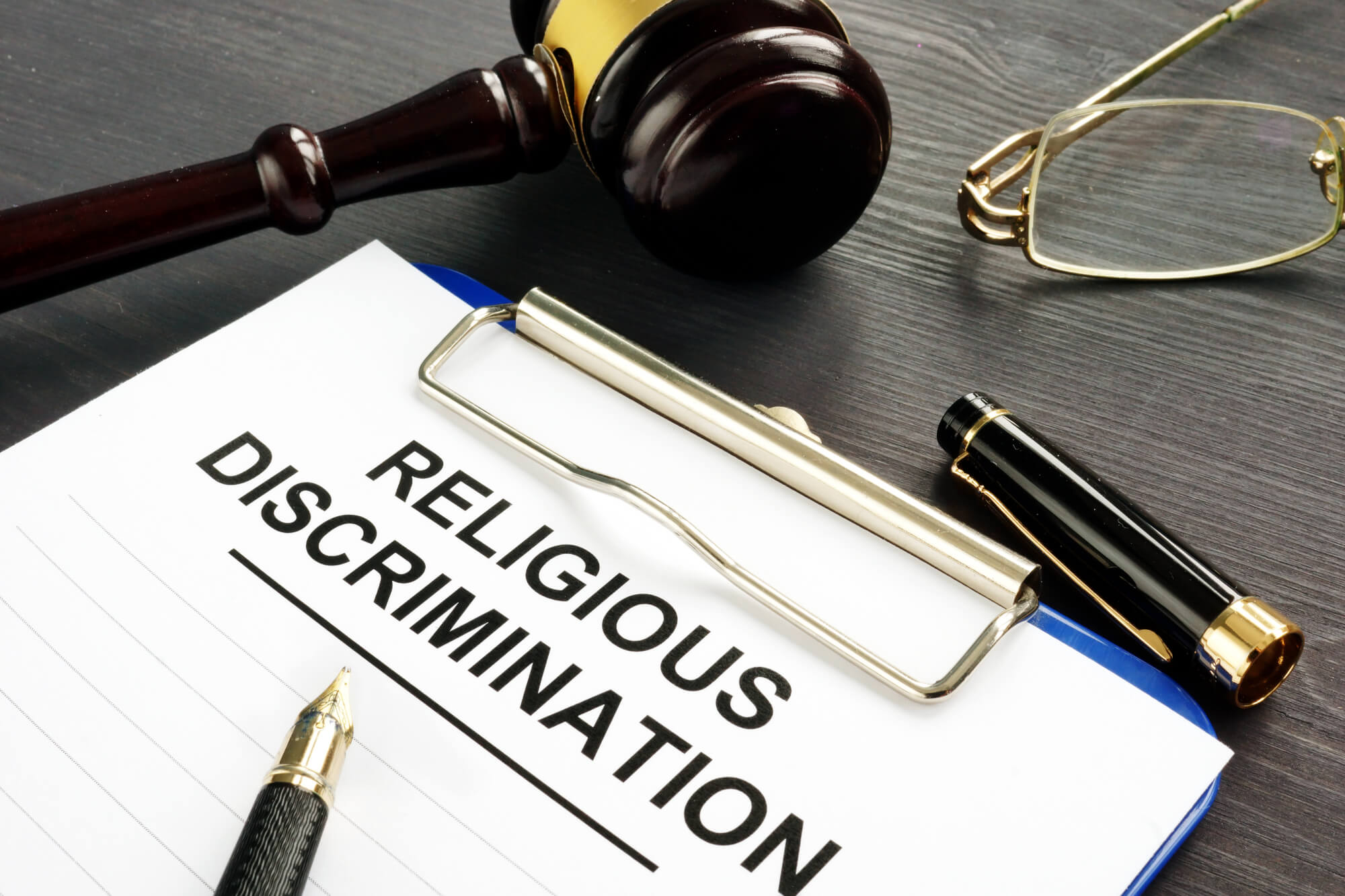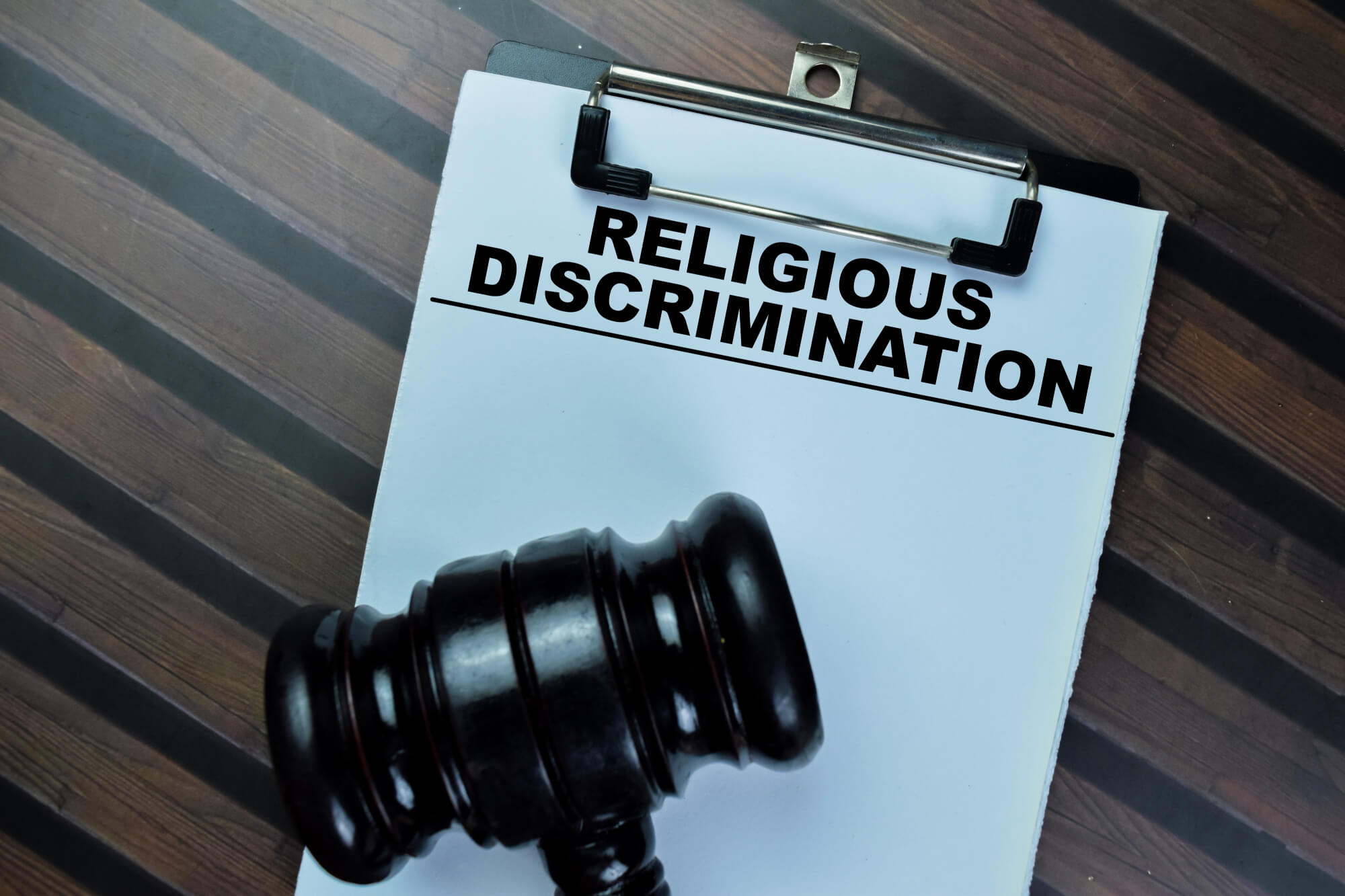Complimentary Phone Consult with an Attorney Today
New Employment Cases 334-237-7773Religious Discrimination in the Workplace
Since our founding, additional laws have been passed to protect religious freedom in specific circumstances. For example, Title VII of the Civil Rights Act of 1964 prohibits employers from discriminating against employees or prospective employees because of their religious beliefs. Additionally, the Fair Housing Act of 1968 prohibits housing discrimination on the basis of religion.
If you have been denied employment, access to housing, or any other protected rights based on your religious beliefs, this is religious discrimination. There are legal options that may be available for you to obtain appropriate relief. The Georgia religious discrimination attorneys at Barrett & Farahany have dedicated their careers to fighting civil rights violations based on religion and other protected classes. They have many years of experience and extensive knowledge of this area of the law and work closely with their clients. This means taking the time to fully understand their situation and fighting hard to obtain justice on their behalf.

Religious discrimination has been on the rise in the workplace in recent years. Over the past few decades, Equal Employment Opportunity Commission (EEOC) discrimination cases based on religion have increased by around 40%. As our culture continues to become more ethnically and religiously diverse, this upward trend is likely to continue for the foreseeable future.
Religious discrimination happens in an employment situation when an employee is treated differently because of their religion, their religious beliefs and practices, and/or their request for a reasonable accommodation in order to practice their religion. Individuals can also be victims of religious discrimination when they are treated differently because they do not practice any religion at all.
Discrimination on the basis of religion in the workplace can take many forms, some of the most common include:

Hiring/Promoting/Firing
The most blatant forms of religious discrimination at work tend to happen when an employer is deciding who to hire, who to promote, and who to terminate/let go. Here are some examples of this type of discrimination:
- Hiring only employees that are members of a certain religion. Organizations that are religious in nature are exempt from this.
- Promoting an employee because they have the same religious beliefs as the owner/manager/supervisor.
- Refusing to hire employees because they are members of a certain religion.
- Denying an employee a promotion because of their religious beliefs.
- Segregating employees who are members of a certain religion to limit their customer interaction because of their religious clothing.

These are all examples of “disparate treatment,” or not treating an employee or prospective employee equally because of their religion.
Failure to Accommodate
Some employees need to take certain actions to practice their religion. For example, some religions dictate:
How a person can dress
How they wear their hair
What they can eat
When they need to pray
What days they should gather for worship
And much more
These are areas where there are often going to be conflicting interests between employees and employers.
Employers are required to provide accommodations for employees to practice their religion as long as these accommodations would not result in undue hardship on the organization. These are known as “reasonable accommodations.”
Examples of reasonable accommodations may include:
- Allowing more flexible work schedules in order for employees to practice their religion.
- Giving employees certain days off for religious observances.
- Making reasonable modifications to job assignments.
- Making reasonable exceptions to dress and grooming requirements.
- Allowing employees to use company facilities during the workday for religious observances, such as prayer.
Unfortunately, some employers do not provide reasonable accommodations for religious purposes after an employee requests them.
Some may go in the opposite direction by implementing policies that discriminate against a certain religion. One example would be not allowing employees to wear headwear, even though it does not affect their ability to do their jobs. This type of discrimination is another example of “disparate impact.”
Harassment
Another common form of religious discrimination in the workplace is creating a hostile or dangerous work environment for employees of particular faiths or allowing this type of environment to foster and thrive. A hostile work environment would be one in which employees with certain religious beliefs are subject to harassment by other employees and management.
Harassment can come in the form of:
Abusive language
Threats
Insults
Intimidation
Mocking
Ridicule
And much more
Many similar behaviors are directed at an employee because of their religion. In order to constitute religious discrimination, however, the harassment must be severe and pervasive. Therefore, simple disagreements between employees about religious beliefs or related matters would probably not meet the definition of harassment under the law.
Religious Discrimination in Housing
The cost of housing has risen exponentially in recent years, and finding a suitable place to live can be a major challenge. This problem is made worse when those who are trying to obtain housing are discriminated against. Religious discrimination is one of the practices that is prohibited by the Fair Housing Act, and it is becoming more of a problem in recent years.
Landlords and others connected to the housing industry are not allowed to treat individuals seeking housing differently because they are members of a certain religion or because they do not practice any religion at all. For example, landlords cannot rent out apartments only to people of their own faith or treat applicants of other faiths differently, such as charging a higher rent or larger damage deposit.

Contact Our Skilled and Knowledgeable Georgia Religious Discrimination Attorneys
If you believe you have been a victim of religious discrimination, there are legal remedies that may be available to you. These may include:
Back pay
Hiring
Reinstatement
Promotion
Compensatory damages
Punitive damages
Legal fees
Any other form of relief that is designed to make you “whole”
Talk To An
Attorney Today
By providing a telephone number, e-mail address, and submitting this form, you are consenting to be contacted by e-mail & SMS text message. Message & data rates may apply. You can reply STOP to opt-out of further messaging.

